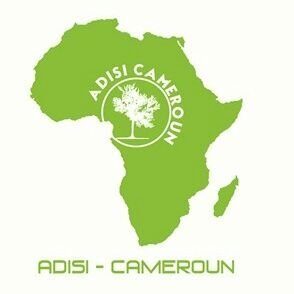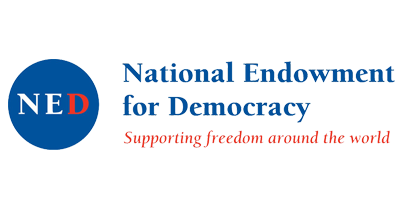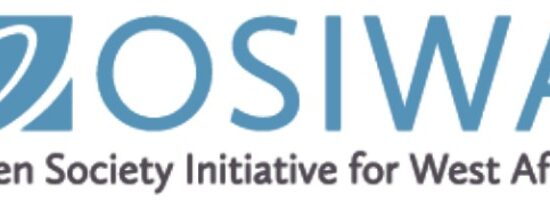Analysis: Towards the polarization of disinformation in Africa
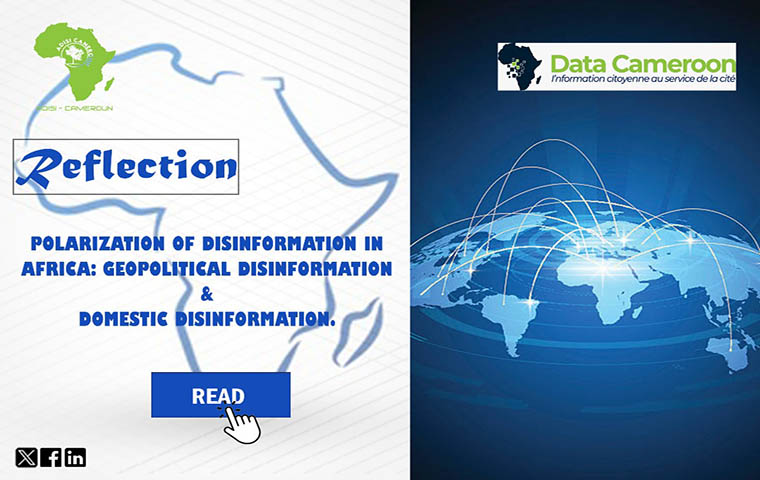
Towards the polarization of disinformation in Africa
Indicators show that disinformation in Africa is growing around two major factors. One international, which we already call geopolitical disinformation and the other internal, which we call domestic disinformation . In this analysis, we attempt to model these two aspects which are essentially based on endogenous and exogenous signals to African States.
From October 5 to 6, 2023, researchers, academics, civil society, journalists and media specialized in information/fact verification met at the University of Mauritius. It was as part of the Africa Facts summit led by Africa Check, the first independent fact-checking organization in Africa. Other renowned partners supported the initiative, including CFI-medias, the media operator of the French Ministry of Foreign Affairs, which has been developing several fact-checking projects on the continent for 3 years, including Désinfox-Afrique, the International fact-checking network (IFCN) and one of the global tech giants, Google.
Two major days of discussions and reflections on the place occupied by the African continent in the major geopolitical issues of disinformation and even misinformation furnished this meeting. An opportunity to take a look at the mostly nascent initiatives to combat disinformation in English-speaking and French-speaking Africa . In reality, initiatives evolving in difficult contexts, particularly in French-speaking Africa where the resurgence of coups d’état, annihilates and swallows up the management of public information and the subjugation of the media by the new holders of power. They remain very reluctant towards the press, particularly the private press, and essentially manage state communication through press releases from the “juntas” in power.
If it is true that the mode of operation of disinformation differs depending on whether we are in the Anglo-Saxon or French-speaking system, more specifically in sub-Saharan Africa, we see a contrast with regard to democratic culture . Indeed, this is more advanced on the Anglo-Saxon side while the governance system in French-speaking countries is likely to weaken access to public information.
Africa facts Summit, Mauritius edition was above all the moment to reinforce the idea that Africa has been the main field of rivalry of the great powers for ages. She is both an actress and a victim of disinformation/misinformation. However, the round table on the dynamics and trends of disinformation in the Arab world, the case of Tunisia and Libya, led us into a deep reflection on the two major poles of disinformation on which Africa is definitively divided or polarized . This is because of its position in the world and the nature of the relationships between leaders and those led who understand democracy and the management of public freedoms from a generally conflicting prism.
To better understand these poles, we try two basic modeling figures that we will call 1 and 2.
- modeling 1 : Cameroon (political and security context), Tunisia (migrant crisis) and Gabon (game of chairs in the palace)
In these three countries which constitute fairly representative models on the continent where domestic disinformation is developing, observation leads us to understand that disinformation is more internal . That is to say, fueled by endogenous factors. By way of illustration, in Cameroon, two major contexts supported by the evolving news of the country, fuel disinformation in all its forms and its neighbor, hate speech. In this case, these are:
- The last presidential election of 2018
Under this banner, the hatred maintained by rival political clans continues to fuel the life of social networks. The web is completely divided, bringing to the forefront ethnic and political rivalries around power. With expressions like “ tontinard ” and “sardinard” of which Professor Mathias Owona Nguini, a Cameroonian academic, claims authorship. Cameroonian society remains very divided regarding the methods of managing central and even peripheral power on social networks and in traditional media. With the 2025 presidential election almost here, what will soon be electoral/political disinformation is starting to emerge with a remake of 2018 in the background.
- The English crisis
Mainly fueled by the diaspora since the beginning of 2017 as part of the violent phase of what is called in Cameroon « the Anglophone crisis « , disinformation is accompanied by hate speech sometimes giving the impression to the world that t is an Anglophone/French-speaking war, sometimes a social-security and even political crisis.
In any case, the intentional dimension of disinformation developed in this crisis for almost half a dozen years by the various stakeholders, shows if there was still a need, that the strategy is of the order of propaganda. Both on the side of the separatists whose supporters run pages on social networks, and on the side of regular institutions whose goal is to discredit the enemy. This is demonstrated, for example, by the numerous press releases from the Cameroonian Ministry of Defense which are regularly undermined by both civil society and human rights defenders. The cases of Ngarbuh of February 14, 2020 or the Kumba massacre of October 24 of the same year, once again show, if necessary, the institutionalization of disinformation for what political scientists call “reason of state” .
- Ambient news
It is particularly marked by social news, sport more specifically football, and the economy, most recently illustrated by the merger of the Groupement Inter patronal du Cameroun (Gicam). Thus, everything related to current events is likely to create disinformation with sometimes, if not regularly, a touch of hate speech. These are most often attacks of a tribalist nature.
Spaces for debate, in particular those of traditional media such as television and radio, are fertile grounds for disinformation. For half a dozen years, the economic fragility of the media in Cameroon has given way to the flourishing of debate shows whose panelists are commonly called “Sunday debaters”.
The imposition of certain panelists by lobbies, the low renewal of these, the lack of mastery of moderation techniques by journalists, add to this already sufficiently dark picture of disinformation. So much so that sometimes, speeches by panelists that go unnoticed on Sundays go viral and further reinforce the controversy once circulated on social networks . This is the work of malicious users who do not hesitate to take the subject out of its original context.
The case of Tunisia is closely linked to the migration crisis that the country is going through. A narrative, according to several documentations, is developed by the power in place. During her presentation at the Africa Facts Summit in Mauritius in October 2023, Rabeb Aloui, Tunisian journalist and promoter of BN Check, points out that the impact of disinformation on migrants from sub-Saharan Africa in Tunisia is distressing. “Migrants often face a deluge of misinformation and stereotypes, making their journey even more perilous.” Disinformation has had a devastating impact on sub-Saharan migrants in Tunisia, sometimes leading to attacks and violence, largely because of the way it has amplified hate speech, creating a climate of distrust and hostility towards communities involved in migration.
However, in Tunisia, erroneous information has fueled fear and xenophobia towards sub-Saharan migrants. Individuals who believed this information tended to see migrants as a threat to their own safety and well-being, which sometimes pushed them to violent acts out of fear of the « other « .
Hate speech amplified by misinformation has manipulated public emotions. The misleading information often evoked alarming fictional scenarios, depicting crimes attributed to sub-Saharan migrants. This has prompted some people to overreact, sometimes with violence, out of fear of these supposed threats. Social media has been a key vehicle for the spread of misinformation and hate speech. False information spread quickly, creating resonance in online communities and reinforcing prejudices . This has contributed to increasing polarization of society and incitement to violence.
Rabeb develops this theory based on the populist speech of President Kaïs Saïed in Tunisia and its impact on migrants from sub-Saharan Africa. Disinformation and misinformation can further marginalize these vulnerable migrants, making them more susceptible to discrimination and hostility.
As for Gabon, what is considered a coup d’état on August 30, 2023 revealed some facets of disinformation in this neighboring country of Cameroon. Although using embryonic, less sophisticated manipulation techniques, the disinformation developed during this period had no stakes as such. This is the case of the debunking carried out by Calame regarding a beer called “booster Oligui”. Authors who took advantage of a political situation for marketing purposes. The false reception of the deposed president, Ali Bongo by the current strongman of Libreville debunked by DataCameroon. It was also noted that an event that took place in Gabon during the electoral period was taken out of context in Cameroon to deride a community because of its dowry practices.
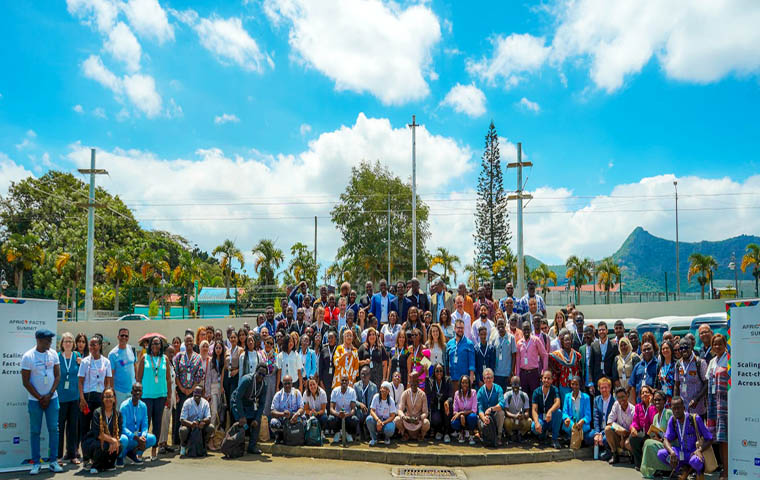
Modeling 2: Burkina Faso, Mali, Niger, CAR
This modeling is embodied in Africa by the disinformation developed by Wagner, the secular arm of Russia which hunts mainly on “French lands” in French-speaking Africa in particular (ancien précarré). It is developing a sort of “hybrid war” to use an expression from Emmanuelle Macron, President of the French Republic . We note that the countries victims of this form of disinformation are mostly located in West Africa with the exception of the CAR located in Central Africa. They also have in common the takeover of power by soldier’s hostile to France outside the CAR, whose power is embodied by a civilian resulting from regularly held elections.
Niger distinguished itself during July to September 2023 with the fall of its former leader Mohamed Bazoum. Disinformation about its uranium has sufficiently fueled international news, damaging in the process the image of France, the main Western country victim of disinformation in French-speaking Africa.
Above all, we must look in an analytical note entitled: “The political economy of the control of natural resources in the Sahel: uranium, nuclear energy production, oil and gas, and governance of Niger” published on September 2, 2023 by the Cameroonian researcher Paul Simon. Indeed, in this economic note, the compilation of data on the quantities of uranium produced in Niger between 2013 and 2020 shows a constant decline over 7 years . The latter shows the remoteness of France’s appetite for Nigerien uranium. The analysis of the data used in this sheet indicates a disparity of information between that maintained by a certain opinion which finds its bed on social networks under the banner of pan-Africanists and the official data. These rather agree with information from certain information and strategic monitoring firms.
In the CAR, Russian penetration since the arrival of the current president of the Central African Republic has led to the development of information hostile to Westerners who were once the masters of this country, which is among the poorest on the planet according to the World Bank. The real false assassination attempt on President Touadera in February 2022, attributed in part to the United Nations Multidimensional Integrated Mission for Stabilization in the Central African Republic (MINUSCA) and to the French legionnaires, testifies to the brutality of disinformation in this country which is trying to pick up the pieces of its political and security instability.
The analysis of screenshots published from Burkina Faso, then Mali and Cameroon and other African countries in a synchronized manner, indicates a nebulous organization and poorly edited information, betraying in passing, a black cabinet behind the process . The special editions of the Afrique Media channel poorly betrayed the hidden agenda.
What is striking about the identity of the network sharing the screenshots is the authors’ affiliation with the famous concept of “Pan-Africanism” . In addition to this aspect, what also stands out is the discourse developed around this affair. Although the presence of the incriminated soldiers took place as part of a Minusca trip, the elements of language used were more focused on France than Minusca, although it was made up of several nationalities.
So, base 1 modeling allows us to theorize domestic disinformation which essentially feeds on current events and the local context. While base 2 modeling leads us to theorize geostrategic disinformation or international disinformation.
In other words, disinformation in Africa is now structured around 2 major poles, a domestic or internal pole mainly dominated by national news. The geopolitical pole, for its part, is driven by exogenous forces interacting with internal phenomena closely linked to politics and economics. In short, it is a game of interests cleverly orchestrated by desires under a competitive strategy .
Paul Joël Kamtchang, Data activist and specialist in disinformation.









